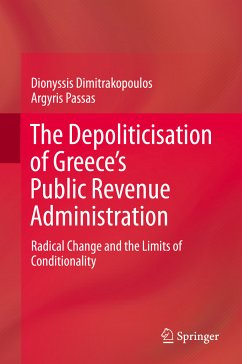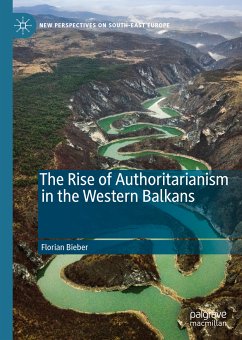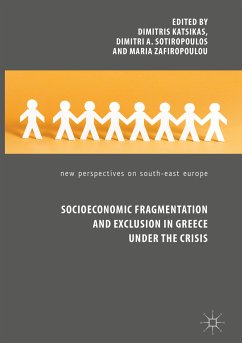
Greece's Ostpolitik (eBook, PDF)
Dealing With the ''Devil''
Versandkostenfrei!
Sofort per Download lieferbar
88,95 €
inkl. MwSt.
Weitere Ausgaben:

PAYBACK Punkte
44 °P sammeln!
The book examines the rapprochement between Greece and Eastern Europe during the Cold War. ''Ostpolitik'', which translates to ''Opening to the East'' is used to describe the policy of conducting affairs with the Soviet Bloc. Using primary sources from Greece, Eastern European States, Cyprus, NATO, the United States, Germany and United Kingdom, this book provides historical and foreign policy analysis of a tumultuous period in the Eastern Mediterranean.The book first illustrates Greece's position in the Cold War confrontation before moving to more detailed analysis of the Eastern Bloc's polici...
The book examines the rapprochement between Greece and Eastern Europe during the Cold War. ''Ostpolitik'', which translates to ''Opening to the East'' is used to describe the policy of conducting affairs with the Soviet Bloc. Using primary sources from Greece, Eastern European States, Cyprus, NATO, the United States, Germany and United Kingdom, this book provides historical and foreign policy analysis of a tumultuous period in the Eastern Mediterranean.
The book first illustrates Greece's position in the Cold War confrontation before moving to more detailed analysis of the Eastern Bloc's policies towards Greece and Cyprus with an emphasis in the harmonious relationship between the Greek military dictatorship and the Communist countries (1967-1974). It analyses the U-turn in Greek foreign and defence policy and the replacement of the Communist ''devil'' by a new one, an equally capitalist country and NATO-ally, Turkey. The book also covers Greece's efforts to elicit theCommunist countries' support against a member of its own Western alliance, as well as the NATO response to this existential threat against its coherence.
A comprehensive study of the East-West competition in South-Eastern Europe and the Eastern Mediterranean during the Cold War, this volume is ideal for researchers and students interested in the international relations of twentieth century Europe and the historical background of the still hot Greek-Turkish Conflict.
Dieser Download kann aus rechtlichen Gründen nur mit Rechnungsadresse in A, B, BG, CY, CZ, D, DK, EW, E, FIN, F, GR, HR, H, IRL, I, LT, L, LR, M, NL, PL, P, R, S, SLO, SK ausgeliefert werden.












